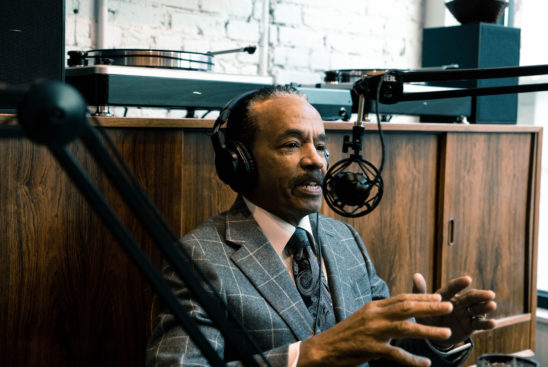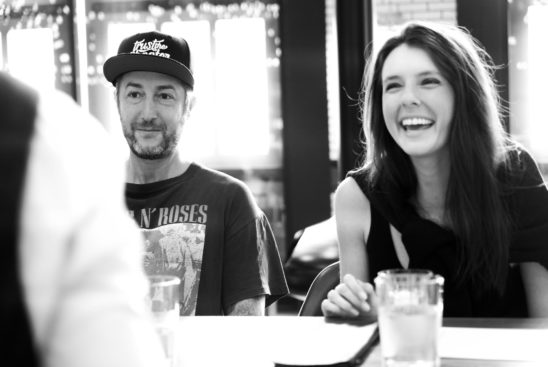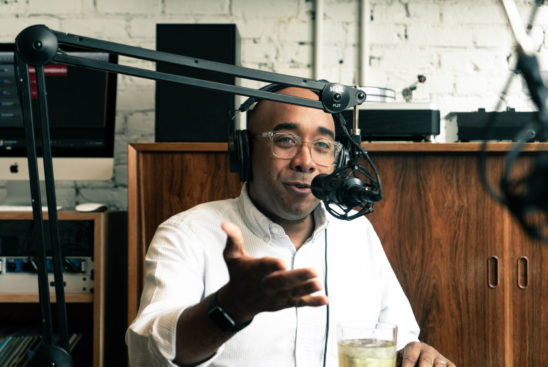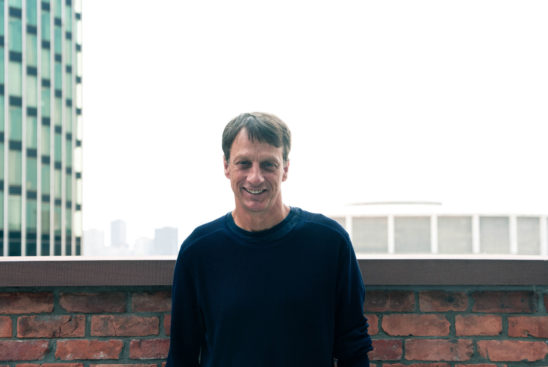Welcome to the Season Finale of Season 2 of “A Drink With – Detroit!” This week we are pleased to be sharing a drink with someone we’ve been wanting to have on the show since the beginning, William Clay Ford Jr. Ford is the great grandson to the founder of Ford Motor Company, Henry Ford, and is the company’s current executive chairman. In this episode, we cover everything from his purchase and plans for the Michigan Central Train Station and charting his own course, to how he believes most risks are worth taking. He reminds us how there was a time that Ford Motor Company would show potential employees everything but downtown Detroit and he shares personal stories about his great grandfather. He leaves us excited about how Detroit is ready to be the spot for city solutions and the future of mobility.
We’d like to give a special thanks to NBS Commercial Interiors who designed our custom set for this conversation. NBS is at the leading edge of workplace design. NBS along with Steelcase believe spaces can inspire new ways of thinking and fuel creativity.
Whether you’re a native Detroiter, a transplant or a boomerang, you can’t deny that what’s happening in the city is history in the (re)making. From the work ethic to the entrepreneurial spirit, Detroiters are rolling up their sleeves and rebuilding the city with the same determination as Henry Ford and Berry Gordy before them. And in the end, those visionaries, similar to the ones you’ll meet this season, not only shaped Detroit, they shaped the world. Once the fastest growing city in the world; the place that created America’s middle class, Detroit is still a city that breeds innovation.
Just like the city of Detroit, our guests have stories of perseverance and creativity. Why should you care? You’ll find motivation and inspiration to apply to your own life from listening to the dreamers, future leaders and risk-takers who are making a direct impact on the community. We talk about lessons learned the hard way, what it took to reach success, business advice and what makes Detroit special.
This season we’re partnering with Goodwill Industries of Greater Detroit whose mission is co-creating independence and dignity through the power of personal and workforce development. Goodwill Detroit works to ensure that every neighborhood of Detroit experiences the kind of renaissance that we’re seeing in downtown and Midtown. We welcome Jessica McCall, the vice president of marketing and external affairs at Goodwill Detroit, as our special co-host. We’re asking listeners to use “#WhatsGoodDetroit“ when you come across something inspiring, notable or just plain good in the city.
We’re recording in the Foundation Studio at Detroit Foundation Hotel. Our official podcast studio is located within the beautiful boutique hotel which is the former Detroit Fire Department Headquarters and Pontchartrain Wine Cellars.
Just a taste…
Why is it so important that Detroit is the place for the future of mobility? What’s the pitch to entrepreneurs to be here and not Silicon Valley?
We invented mobility here. We have more engineers in Southeastern Michigan than any place in the country and also what more cool thing to work on than the future of transportation? To make the quality of life in cities all around the world better, that’s really an interesting proposition for entrepreneurs to work on. I don’t think it’s coincidence that the vibe in Detroit is becoming a real magnet for young people. Put it this way, even five years ago, were we to go out to Silicon Valley and say “Hey, come to Detroit…” number one, we really wouldn’t have had the business proposition to lay in front of them but more importantly we wouldn’t have had the city’s revival to lay in front of them. Kind of amazingly these two events happened almost simultaneously. And then you look at the train station and think about some of these campuses in Silicon Valley — which are pretty neat — but they have nothing like [Michigan Central Train Station.] There’s nothing like Corktown and a city vibe and taking an amazingly beautiful old building and making it incredibly relevant for the future. That’s something that very few other companies can offer.
It seems like the stars are aligning for Detroit.
They are. When I look back at our old recruiting at Ford — even a few years ago — if we were trying to recruit someone from the East Coast or the West Coast we’d show them everything but downtown Detroit. We’d show them the suburbs, Ferndale or Ann Arbor. We’d take them to a ball game and show them the suburbs and tell them how wonderful Northern Michigan is. But now the first thing we show is Detroit.
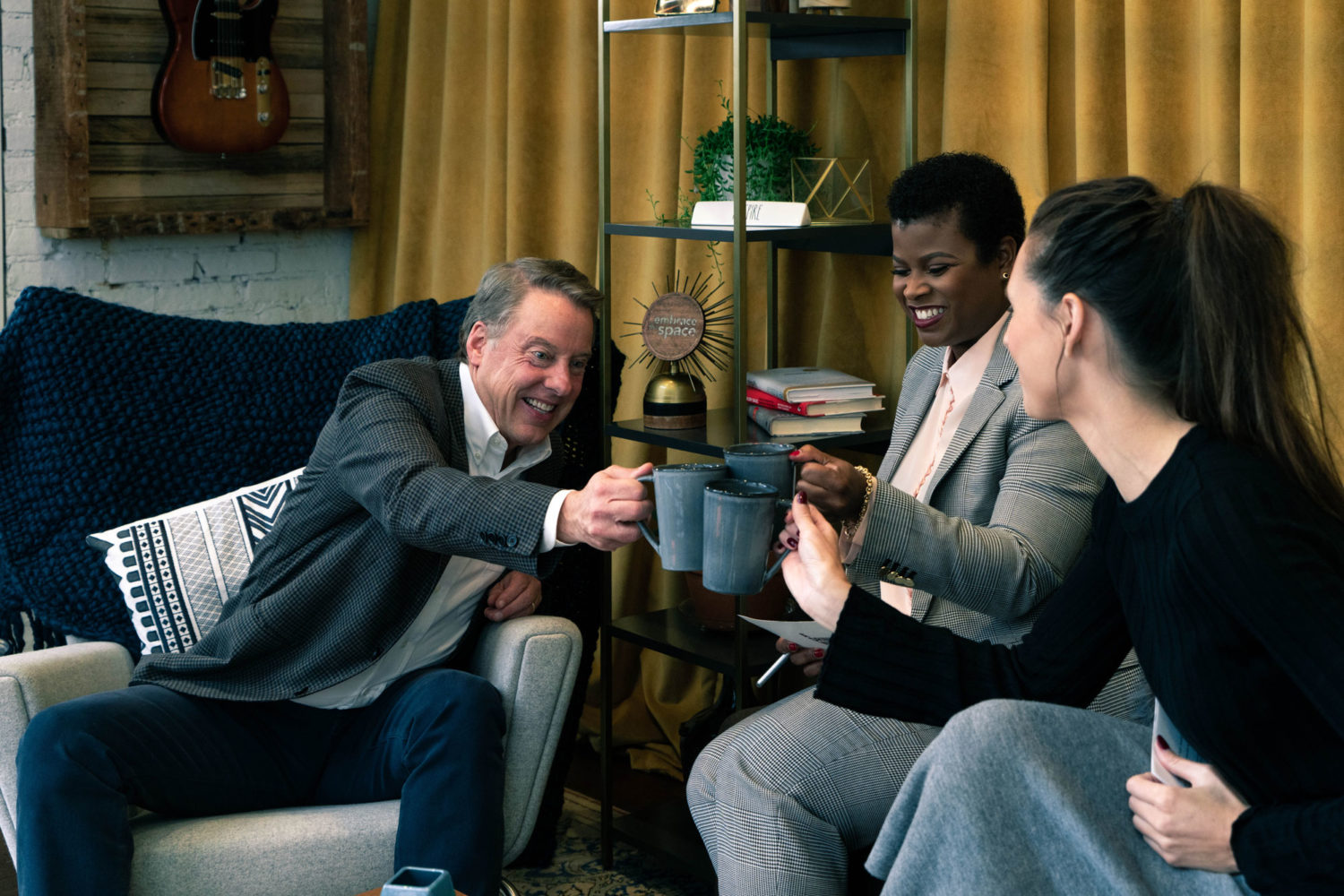
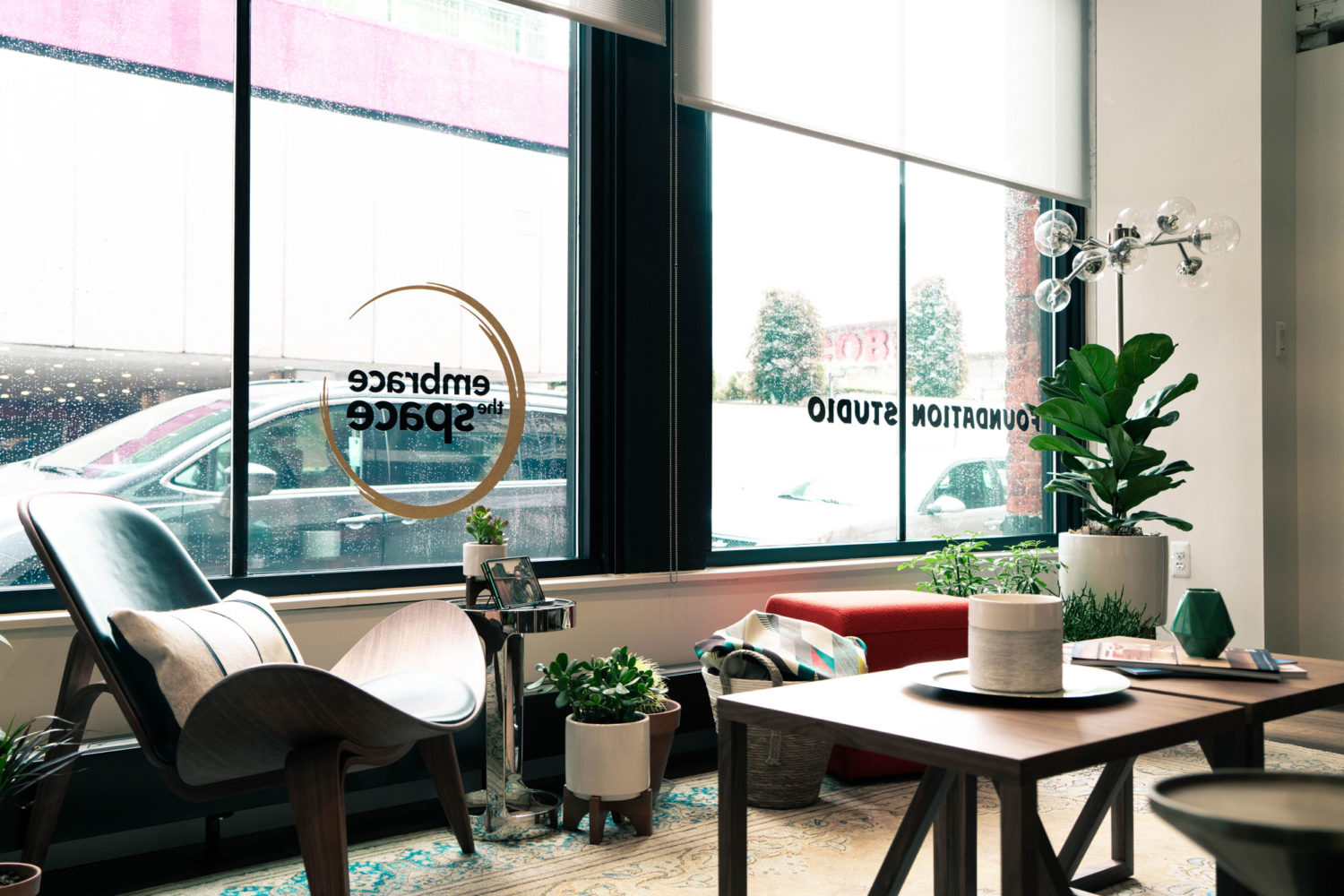
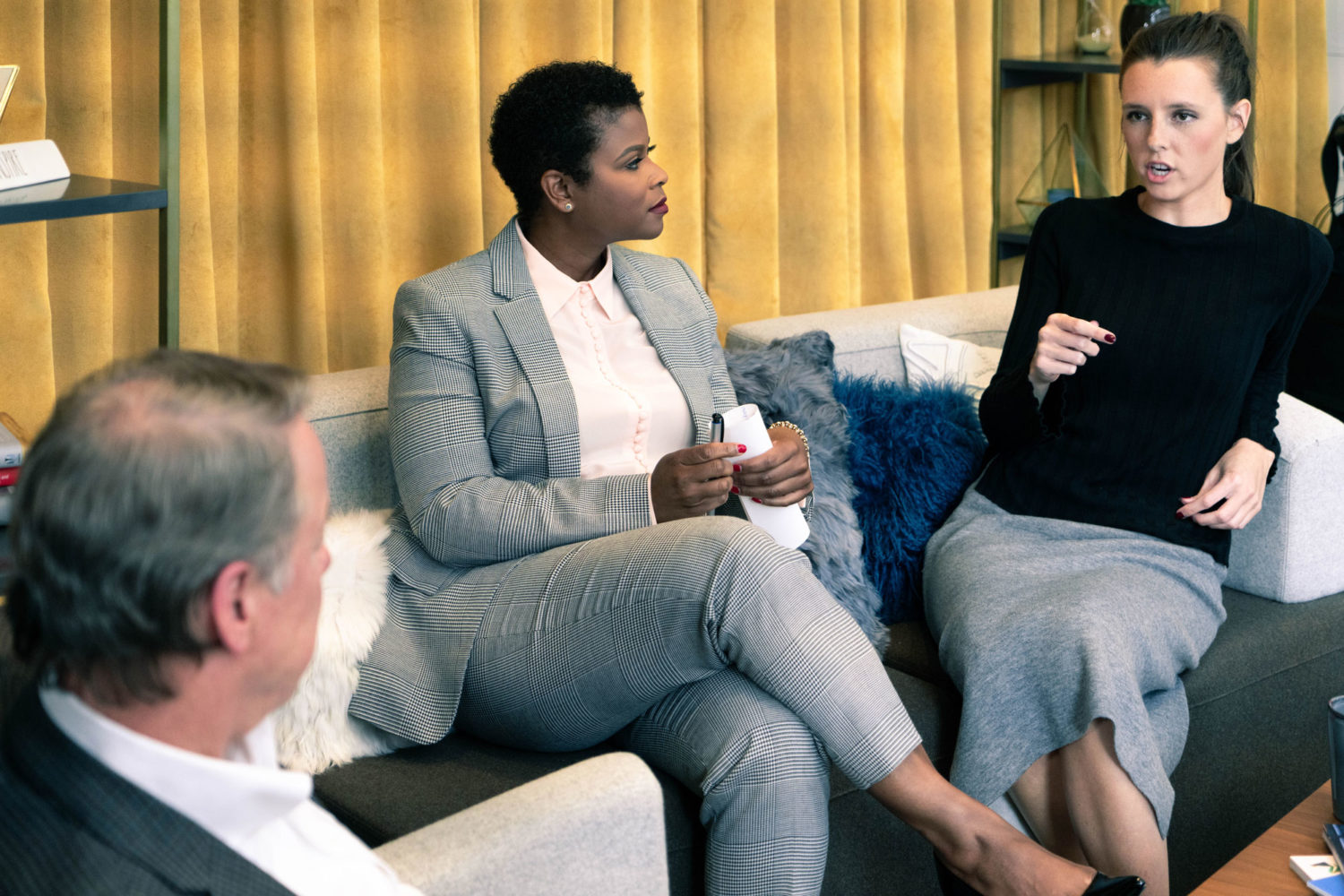
Who do you call when you need to think through something?
I have a lot of friends but the reason they’re friends is because I don’t do a lot of business with them [laughs]. There’s a guy who is a friend of mine who was one of the leading lights in the American Buddhist movement out in California. I met him about 35 years ago and he is one of the kindest and wisest people I know. I call him a lot when I just need some perspective on things. It’s awfully easy to get in your own head and we all do that but particularly in my job. Often I’ll give him a call and just want to talk. That is very cathartic for me.
How do you know when a risk is worth taking and what has been a risk you have taken that has paid off?
I find that most risks are worth taking. Most of the regrets I have were the risks I didn’t take. You have to think it through but in the end the data won’t get you there. The data won’t make a decision for you. I think too often in companies people want to have death by Powerpoint and they want to lay out chart after chart and expect that will make the decision. No. By definition the future is unknown. The data can show you everything about the past, but it can tell you nothing about the future. It can inform your thinking but you then need to use judgment, which a lot of people are afraid to use to make a decision about the future. I find that there have been a lot of moments in my life… there’s a big event coming up this week where it’s the 100th anniversary of the Rouge plant and one of the pieces of advice that I got was to close the plant. [They said,] “It’s an industrial wasteland, it’s a dirty site. Let’s just move over somewhere else.” I said, “Absolutely not. Let’s turn it into the most environmentally correct plant in the country.” There wasn’t a lot of support for that. It was absolutely the right thing to do and it’s turned out really well. In ’08, ’09 I decided to mortgage everything including our family name to borrow as much money as we could — $23 billion — to get us through the crisis. Well, there weren’t a lot of people who thought that was a very smart thing at the time. In the end we didn’t go bankrupt because we did that and our major competitors did. I find that if it’s a calculated risk it’s usually worth taking. It’s not that I don’t value other people’s opinion, I do, but you have to listen to yourself. The other thing is you’ll never regret if you make a decision absolutely believing it’s right and it doesn’t work but on the other hand you believing something is right and you don’t act on it… that will bother you for the rest of your life.
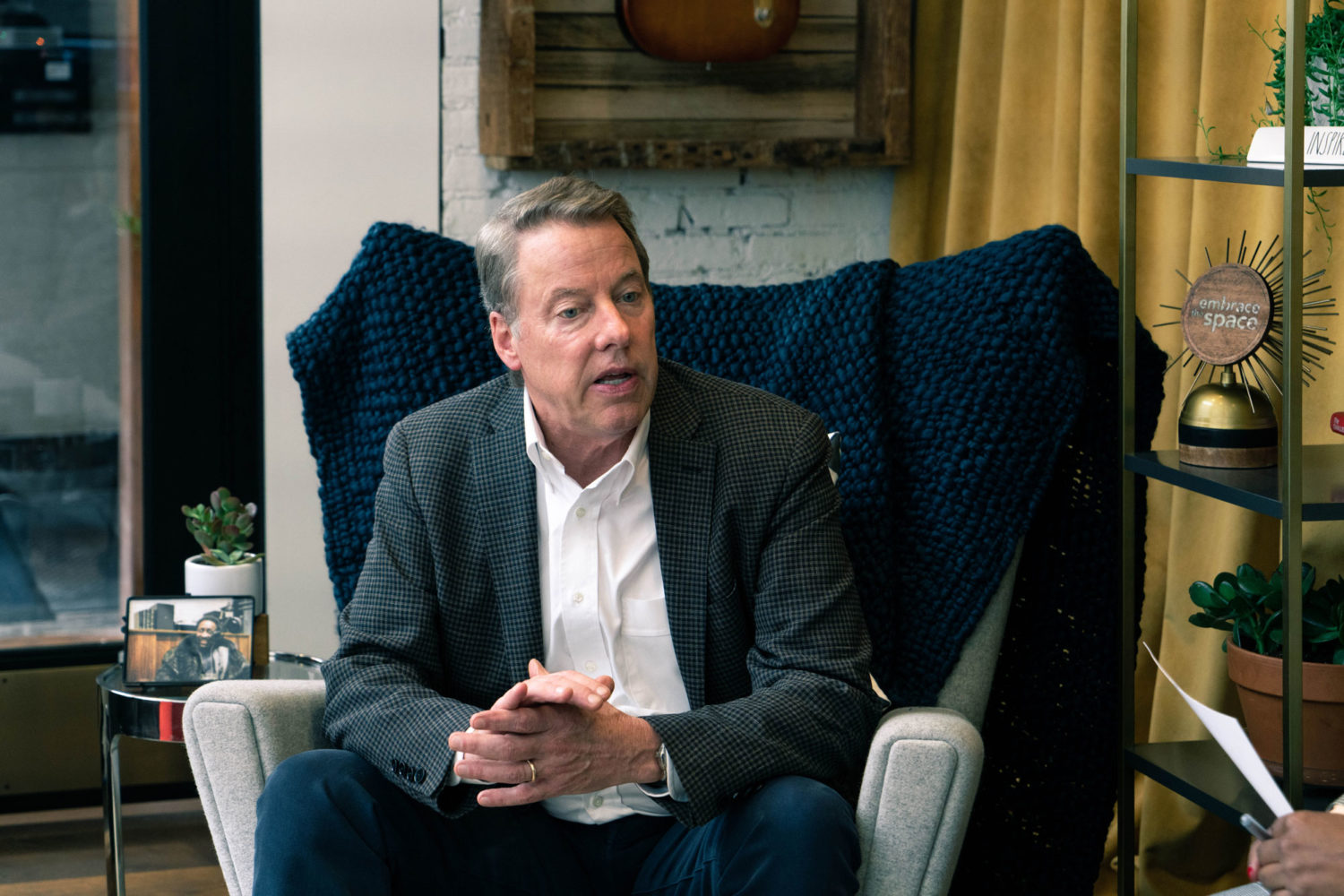
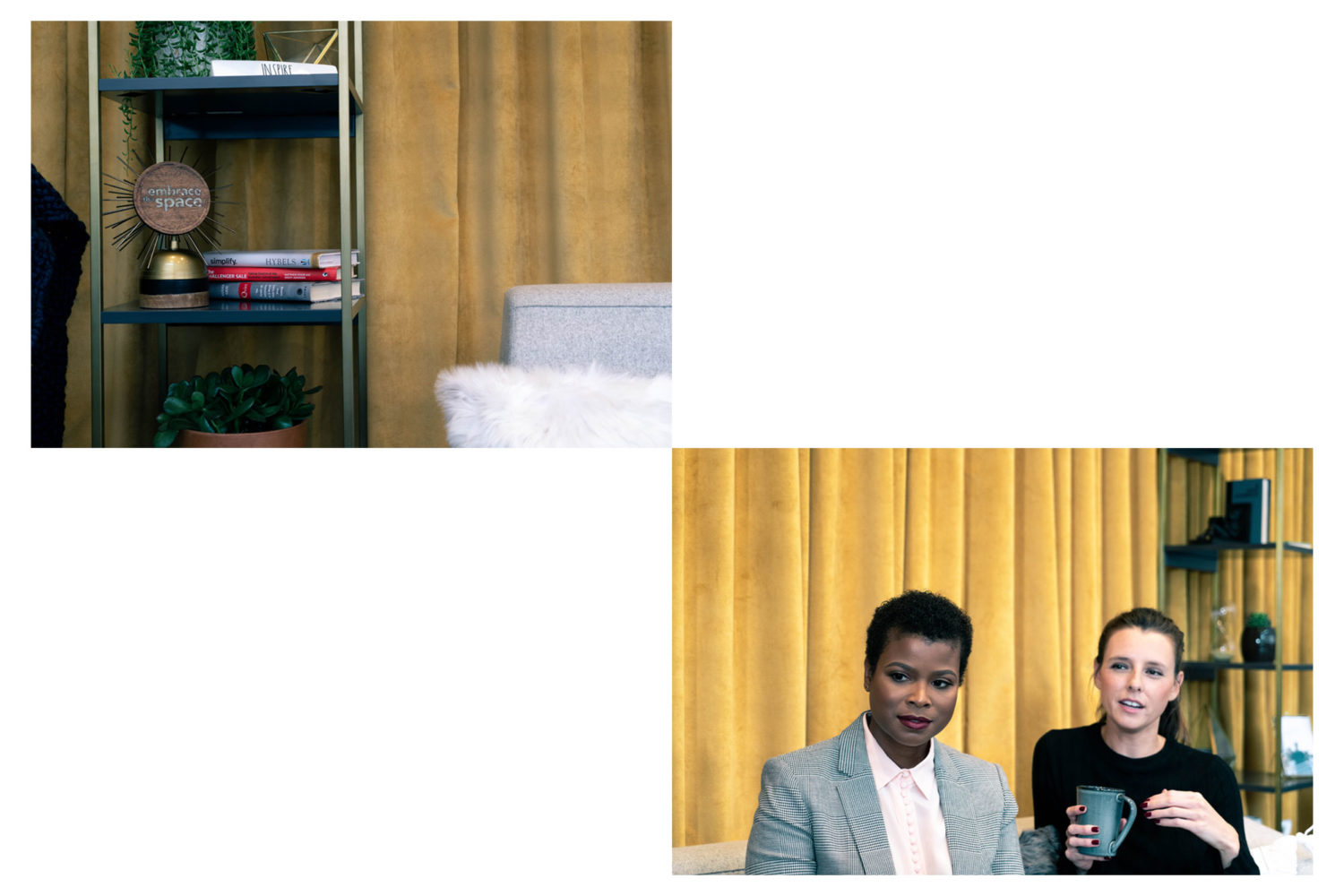
Was there any pressure during that 2008-2009 period to fall in line with what the other two automakers were doing?
There was a lot of pressure every day. I don’t think I slept a whole lot for about three years. We had to chart our own course. I really couldn’t get too hung up on what others were doing or weren’t doing. That was a really hard period. The hardest part was the effect it had on our employees. At the end of the day, to me, a company isn’t the buildings or the products we make, it’s the people. Any company is only as good as its people. We had to make some really hard decisions that I hated about people then. I was in the community with them; My kids played Little League with them, they went to school with them. That was really hard. The great news was when we got out of it we were able to rehire so many of those people back which I loved.
What’s the first thing you’d want to talk about with your great grandfather, Henry Ford, if you had the chance to sit down with him?
I think he would love what’s going on right now in terms of auto 2.0 that’s being invented today. I’ve had people say to me on the negative side, “What would your great grandfather think of you spending so much time on autonomous driving and artificial intelligence and things like that?” I think he would love it. He was the ultimate tinkerer. He was the ultimate futurist. I would love to get his thoughts on where we’re headed, not on what we’ve done in the past. I think he would be bored by that frankly. It’s interesting because as we’re changing, people always use him as an example of why we shouldn’t change saying, “Your great grandfather wouldn’t like you spending so much time on all this stuff,” and I’d say, “Of course he would.” That’s all he’d be interested in I think… where we’re headed rather than where we’ve been.
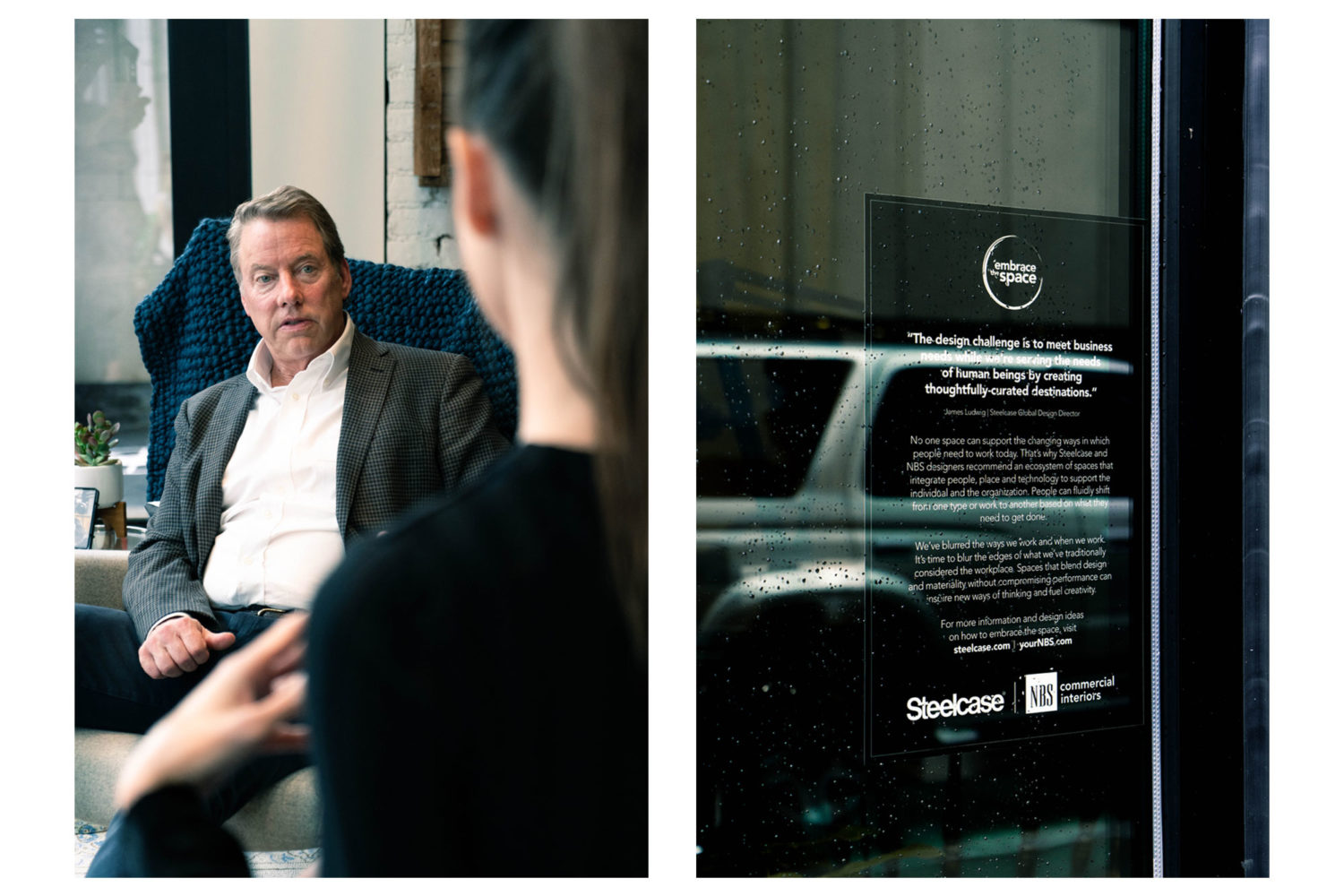
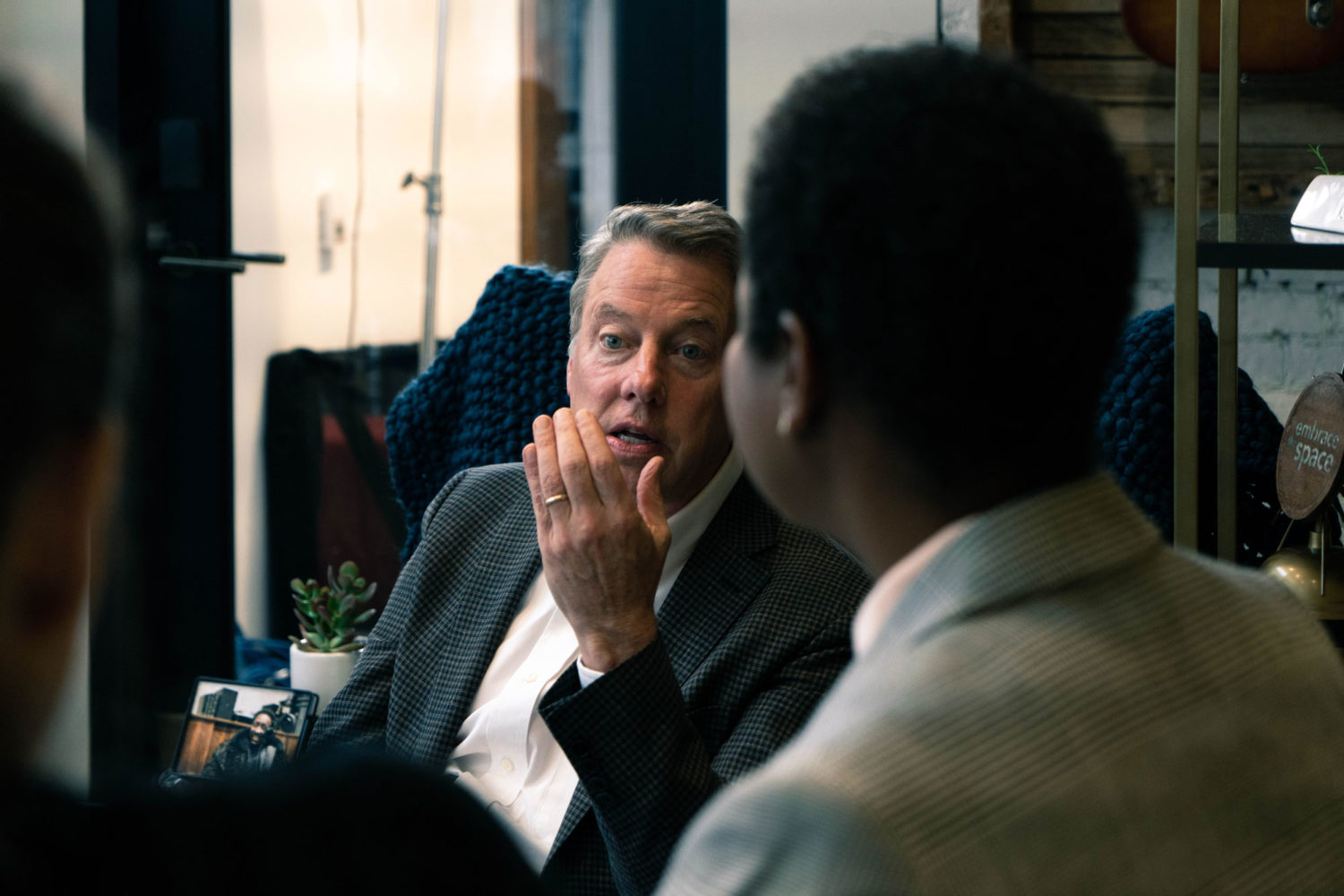
If you could have a drink with anyone, who would it be?
Other than you two? One of the great things about my job and the fact I’ve been in it a long time is I’ve been able to meet pretty much all the world leaders, sports figures and societal leaders. I think of Nelson Mandela, Dalai Lama and world political leaders. I know you ask that question and I’ve thought about it and there are so many people I would love to spend time with, but I don’t have a bucket list or anything like that. I’ve been so fortunate to meet so many great people in great circumstances. When you do that of course some people are disappointing and some are every bit of what you hoped they would be.
Who was someone who was just like you imagined?
I felt like when I was in the presence of Nelson Mandela I was in the presence of somebody who was almost not of this world. He was such a kind man, but he had this air about him that’s hard to describe. I remember leaving thinking, “Wow, that was life-changing.” It wasn’t anything he said. It wasn’t like he gave me some great advice that I hung onto for the rest of my life but there was just a feeling about him. Probably him more than anyone else. The Dalai Lama, certainly. One thing about him is he’s got an incredible sense of humor and loves to laugh and that’s really fun. Most of the political figures I’ve met have been more buttoned down and sort of harder to get to know as people. It’s more of a stilted discussion, if you will. Not to say that some of them can’t be great people, but I’d say those two are the two who really stand out to me. And of course my personal boyhood favorite was Gordie Howe. I got to know him and he was just such a wonderful gentleman and everyone I’ve ever met has nothing but great things to say about him.
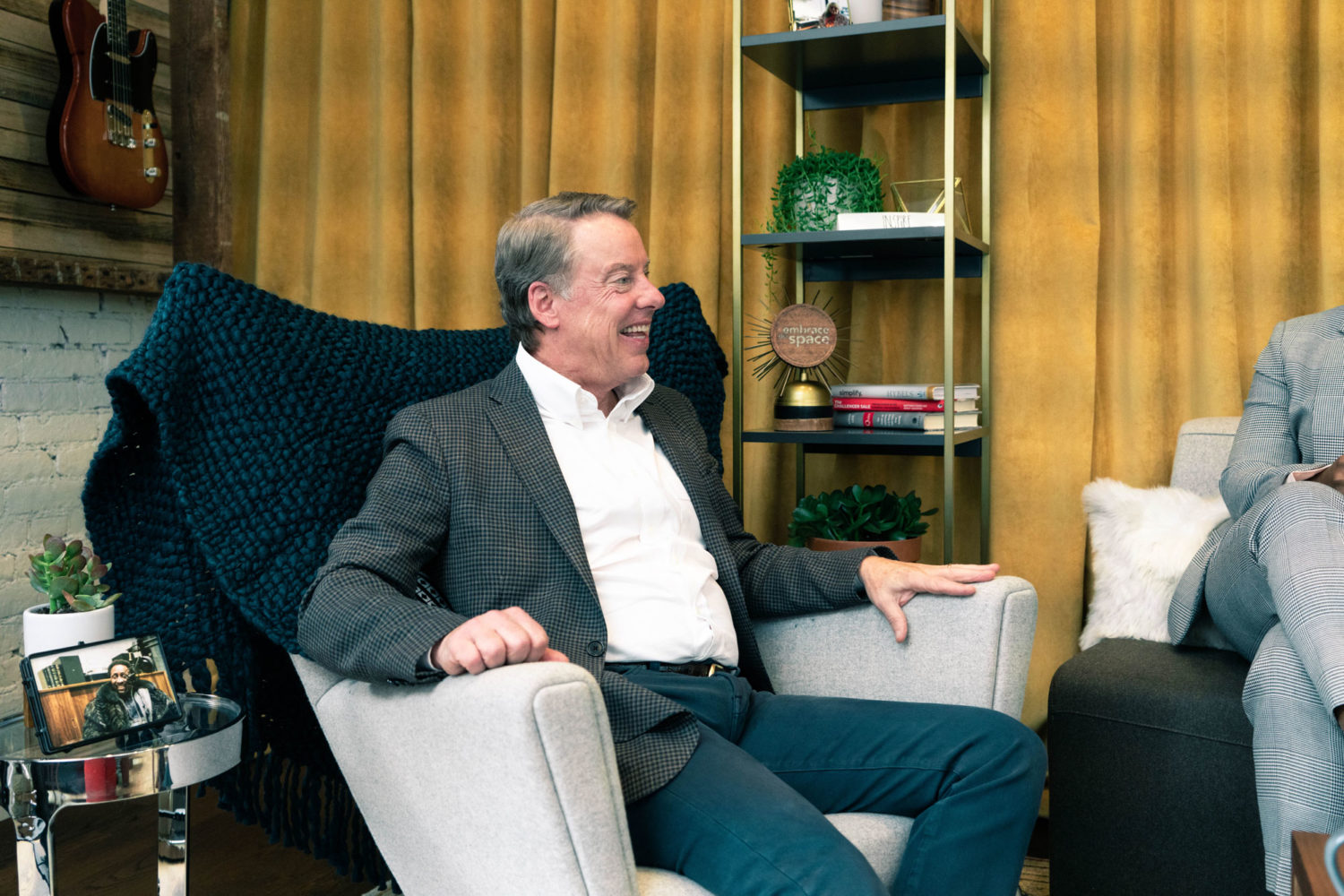
Photography by Derrick Busman
Listen to the full conversation on Apple Podcasts or SimpleCast.
Did you enjoy this feature? Subscribe to our newsletter and never miss a drink, we promise we’ll never spam you!

